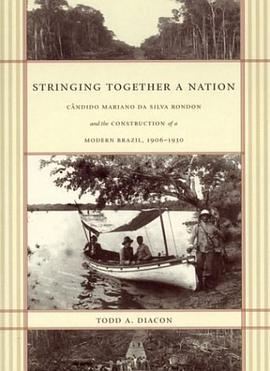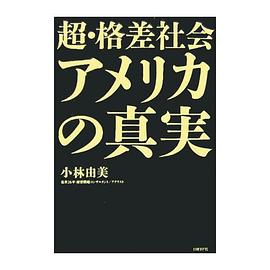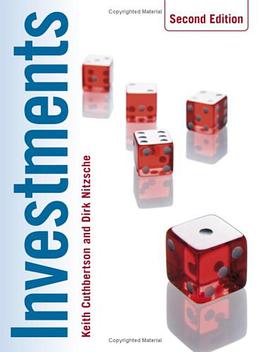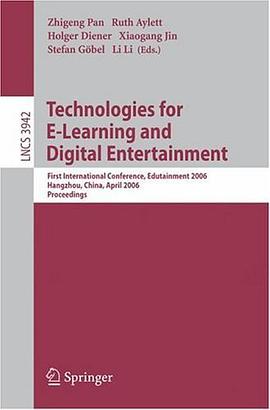

具体描述
Focusing on one of the most fascinating and debated figures in the history of modern Brazil, Stringing Together a Nation is the first full-length study of the life and career of Cândido Mariano da Silva Rondon (1865-1958) to be published in English. In the early twentieth century, Rondon, a military engineer, led what became known as the Rondon Commission in a massive undertaking: the building of telegraph lines and roads connecting Brazil's vast interior with its coast. Todd A. Diacon describes how, in stringing together a nation with telegraph wire, Rondon attempted to create a unified community of "Brazilians" from a population whose loyalties and identities were much more local and regional in scope. He reveals the work of the Rondon Commission as a crucial exemplar of the issues and intricacies involved in the expansion of central state authority in Brazil and in the construction of a particular kind of Brazilian nation.
Using an impressive array of archival and documentary sources, Diacon chronicles the Rondon Commission's arduous construction of telegraph lines across more than eight hundred miles of the Amazon Basin; its exploration, surveying, and mapping of vast areas of northwest Brazil; and its implementation of policies governing relations between the Brazilian state and indigenous groups. He considers the importance of Positivist philosophy to Rondon's thought, and he highlights the Rondon Commission's significant public relations work on behalf of nation-building efforts. He reflects on the discussions—both contemporaneous and historiographical—that have made Rondon such a fundamental and controversial figure in Brazilian cultural history.
作者简介
目录信息
读后感
评分
评分
评分
评分
用户评价
我最近读完了一本叫做《Stringing Together a Nation》的书,心情久久不能平复。这本书不仅仅是一部历史著作,更像是一幅徐徐展开的宏伟画卷,用最细腻的笔触描绘了一个国家从零散走向凝聚的漫长而艰辛的历程。作者在书中展现出的非凡洞察力,让我得以窥见那些塑造我们今日世界的关键时刻,以及隐藏在历史洪流之下的无数个体命运。我尤其被书中对那些鲜为人知的基层人物的关注所打动,他们或许没有在史书中留下姓名,但正是他们的汗水、智慧和牺牲,一点一滴地构筑了国家的基石。书中对不同地域、不同民族之间错综复杂关系的梳理,也极具启发性。作者并没有简单地将历史描绘成一条直线,而是深刻地揭示了其中存在的拉扯、冲突与妥协,这种多维度的叙事方式,让我对历史的理解不再是单一的线性因果,而是更加立体和 nuanced。每一次翻阅,都仿佛能听到历史的回响,感受到那些过去时代人们的情感与挣扎。这本书让我深刻体会到,一个国家的形成,绝非一蹴而就,而是无数细小元素的“stringing together”,每一种力量都不可或缺,每一种经历都值得被铭记。我强烈推荐给所有对历史、对国家发展、对人性深度感兴趣的读者,它会颠覆你对历史的认知,并让你对当下产生更深刻的思考。
评分说实话,我起初是被《Stringing Together a Nation》这个书名所吸引。它简练而富有诗意,似乎预示着一段关于凝聚与构建的故事。然而,真正让我沉迷其中的,是作者笔下那种史诗般的叙事风格,以及他对历史细节的精准把握。这本书的篇幅不小,但每一次阅读都觉得时间飞逝,因为我完全被书中的内容所吸引。作者以一种近乎侦探般的严谨,抽丝剥茧地揭示了国家形成过程中那些错综复杂的联系,从政治、经济、文化到社会心理,几乎无所不包。我尤其欣赏书中对那些被主流历史叙事所忽略的声音的关注,无论是边远地区的普通农民,还是新兴行业的创业者,他们的故事都在作者的笔下熠熠生辉,构成了国家肌体不可或缺的一部分。这本书不仅仅是讲述“发生了什么”,更是在探讨“为什么会发生”,以及“这些事件对后世产生了怎样的深远影响”。它让我深刻理解到,一个国家的“stringing together”,是一个动态而持续的过程,充满了挑战,也充满了希望。这本书让我对历史的理解更加深刻,也对人类社会的发展规律有了更进一步的认识。
评分《Stringing Together a Nation》这本书,在我心中留下了一道深刻的印记。作者以其宏大的视野和细腻的笔触,描绘了一个国家从混沌走向有序,从分裂走向统一的伟大进程。我尤其欣赏书中对那些决定国家命运的关键人物的刻画,他们身上所体现出的远见、魄力与担当,令人肃然起敬。但这本书的伟大之处,更在于它并没有止步于对精英人物的描摹,而是将目光投向了更广阔的民间,那些普通人在时代的洪流中如何生存、如何发展,以及他们的集体智慧如何成为国家发展的重要推动力。这种“stringing together”的过程,充满了无数的挑战与困境,但正是无数个体的不懈努力,才最终汇聚成一股强大的力量,将国家凝聚在一起。这本书让我对“国家”有了更深层次的理解,它不是一个简单的政治实体,而是一个由无数鲜活生命,在共同的理想下“stringing together”而成的命运共同体。
评分《Stringing Together a Nation》这本书,给我带来了一种前所未有的阅读体验。作者以其深厚的学识和非凡的叙事能力,将一个国家从分散走向统一的复杂历程,描绘得淋漓尽致。我尤其被书中对不同文化、不同地域之间如何相互影响、彼此塑造的细致描写所折服。这种“stringing together”的过程,并非一帆风顺,而是充满了摩擦、碰撞与妥协,但正是这些复杂而真实的互动,才最终构筑了一个具有凝聚力的整体。作者并没有简单地将历史事件罗列出来,而是深入挖掘了事件背后的人性、动机和价值观,让每一个历史节点都充满了张力和思考。我从书中看到了许多令人振奋的时刻,也看到了许多令人扼腕叹息的遗憾,但这一切都构成了这个国家真实而完整的历史。这本书让我对“国家”的理解,从一个抽象的概念,转化为一种生动、鲜活的集体生命体。它让我更加深刻地理解到,一个强大的国家,是无数个体生命,在共同的愿景下,用他们的努力和牺牲“stringing together”而成的。
评分《Stringing Together a Nation》这本书带给我的震撼,远非“精彩”二字所能概括。它是一种沉浸式的体验,仿佛置身于那个风云变幻的时代,亲眼目睹着那些塑造国家走向的重大决策是如何艰难诞生的,又有哪些不为人知的力量在幕后默默推动。作者的叙事技巧堪称一绝,他能够将宏大的历史进程与微观的个体故事巧妙地融合在一起,让冰冷的史实变得鲜活而充满人情味。我印象最深刻的是书中关于不同文化、不同价值观如何碰撞、融合,最终形成一种共同认同的描写。这其中充满了妥协与博弈,也充满了智慧与远见。作者并没有回避历史中的矛盾与冲突,反而将其作为推动国家前进的重要动力来分析,这种客观而深刻的态度,让我对作者的学识和严谨感到由衷的钦佩。读这本书,我不仅增长了知识,更重要的是,它引发了我对“国家”这个概念的重新思考。它不是一个抽象的概念,而是由无数个鲜活的个体,用他们的努力、他们的思想、他们的情感“stringing together”而成的。这本书让我更加理解了历史的复杂性,也更加珍视来之不易的和平与团结。这是一部值得反复阅读、细细品味的伟大作品。
评分《Stringing Together a Nation》这本书,用一种极其生动而深刻的方式,讲述了一个国家从无到有、从弱到强的奋斗史。作者以其非凡的叙事能力,将那些复杂的历史事件,用一种引人入胜的方式呈现出来,仿佛让我置身于那个波澜壮阔的时代,亲身感受着国家建设的点点滴滴。我尤其被书中对不同地区、不同民族之间如何相互依存、共同发展的描写所打动。这种“stringing together”的过程,充满了挑战与艰辛,但正是无数个体的不懈努力,才最终构筑了一个强大而有韧性的国家。这本书不仅仅是关于历史事实的陈述,更是一种关于集体智慧、关于国家认同、关于共同未来的深刻思考。它让我对“国家”有了全新的认识,不再是简单的疆域和人口,而是由无数鲜活的生命,在共同的追求下“stringing together”而成的伟大篇章。
评分在我读过的所有历史书中,《Stringing Together a Nation》无疑是最具启发性的一部。作者以一种极其富有洞察力的方式,剖析了一个国家如何从最初的零散个体,通过无数次的互动、妥协与融合,最终形成一个强大的整体。我被书中对不同文化、不同习俗如何在交流碰撞中相互适应、最终形成共同认同的描写所深深吸引。这种“stringing together”的过程,并非一蹴而就,而是充满了漫长而艰辛的努力,也充满了无数令人振奋的突破。作者并没有回避历史中的矛盾与冲突,反而将其作为推动国家进步的重要动力来分析,这种客观的态度让我对历史的理解更加深入。这本书让我明白了,一个国家的形成,需要的不仅仅是领导者的智慧,更需要全体国民的共同参与和不懈努力。它让我对“国家”有了更深刻的认识,也对人类社会的发展充满了信心。
评分我通常不太容易被历史类书籍所打动,但《Stringing Together a Nation》却彻底改变了我的看法。这本书的深度和广度都令人惊叹,作者仿佛是一位经验丰富的织工,用最精湛的技艺将无数条丝线——历史事件、人物传记、社会变迁——巧妙地编织在一起,构成了一幅波澜壮阔的国家史诗。我特别欣赏书中对那些关键时刻的描写,那些决定国家命运的转折点,作者都进行了深入细致的剖析,让我们得以窥见那些决策背后的权衡与考量。更重要的是,这本书不仅仅关注顶层设计,更将目光投向了广袤的民间,那些默默无闻的个体如何在这个大时代中发挥作用,他们的生活状态如何影响着国家的走向,这些都被作者一一呈现。这种“stringing together”不仅仅是简单的拼接,而是有机融合,是多元力量的汇聚,最终形成一股强大的合力。这本书让我认识到,国家的形成是一个多么复杂而精妙的过程,它需要无数个微小的“线头”汇聚,才能织就一张坚韧而持久的“国民之网”。
评分读完《Stringing Together a Nation》,我最大的感受是,历史不再是枯燥的年代和事件的堆砌,而是充满了生命力的故事。作者以其独特的视角,将那些宏大的历史叙事,拆解成无数个微小的、充满人情味的故事碎片,然后又用一种近乎艺术的手法,将它们巧妙地“stringing together”,呈现出一个完整而感人的国家构建画卷。我被书中对那些在时代洪流中被忽视的个体命运的关注所深深打动,他们的坚韧、他们的智慧、他们的牺牲,共同谱写了国家发展的壮丽篇章。书中对不同社会阶层、不同民族之间关系的描绘,也极其深刻,它揭示了国家形成过程中,各种力量的拉扯、融合与博弈,以及最终形成的这种微妙而强大的平衡。这本书不仅仅是一部历史著作,更是一部关于人性、关于选择、关于共同体意识的深刻探讨。它让我更加理解了,一个国家的“stringing together”,是多么不易,又是多么伟大。
评分《Stringing Together a Nation》这本书,对我来说,更像是一次心灵的洗礼。作者以一种极其人性化的视角,讲述了一个国家从分裂走向统一的漫长征程。他笔下的历史人物,不再是教科书中冰冷的面孔,而是有血有肉、有情有欲的普通人,他们的喜怒哀乐,他们的奋斗与牺牲,都深深地触动着我的内心。书中对不同地域、不同文化背景的人们是如何克服隔阂,最终建立起共同体意识的描写,更是让我感同身受。这种“stringing together”的过程,充满了曲折与反复,也充满了智慧与勇气。作者没有回避历史中的黑暗面,但他更侧重于展现人类在困境中迸发出的强大生命力。我从中看到了希望,看到了团结的力量,也看到了一个国家凝聚力的真正含义。这本书的语言风格也非常独特,既有学术的严谨,又不失文学的感染力,读起来丝毫不会感到枯燥。它让我对“国家”有了全新的认识,不再是简单的政治概念,而是由无数个体生命“stringing together”而成的温暖共同体。
评分 评分 评分 评分 评分相关图书
本站所有内容均为互联网搜索引擎提供的公开搜索信息,本站不存储任何数据与内容,任何内容与数据均与本站无关,如有需要请联系相关搜索引擎包括但不限于百度,google,bing,sogou 等
© 2026 book.wenda123.org All Rights Reserved. 图书目录大全 版权所有




















